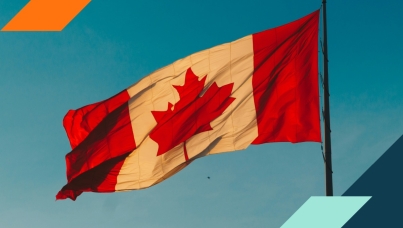Amid Black History Month, Less than Half Agree Public Education Does a Good Job of Teaching Black History in Canada (46%)
Toronto, ON, Feb 17, 2021 — February marks Black History Month – 28 days formally dedicated to celebrating the achievements of the black community, to better understand the history of black identity, and to honor the lives of black Canadians who have made history as well as those among us who are in the process of making history.
However, while there continues to be a push to better include black history as a part of school curriculum, at present a minority agrees that in Canada, public education does a good job at teaching black history (46%). Those over the age of 55 are most likely to disagree (61%) that public education does a good job perhaps alluding to the worse state of the curriculum as experienced by older Canadians.
Speaking to the lack of knowledge and related misperceptions, Canadians vastly overestimate the black population in the country. The average estimate is that 21% of Canada’s population is black – or in other words that one in 5 Canadians are black. The reality, however, as per the 2016 StatsCan Census, is that only 2.5% of Canadian adults identify as black.
In the first week of Black History Month, the Black Lives Matter (BLM) movement was nominated for the 2021 Nobel Peace Prize. Two thirds (67%) of Canadians indicate that they support the nomination of BLM for the Nobel Peace Prize (with support highest in BC 81% and QC 79% vs. 65% ON, 55% SK/MB, 41% AB) while six in ten support BLM actually winning the award.
This Black History Month, however, has been unique in various ways. First, it has fallen during a pandemic, and although this has affected the population world over, some have been harder hit than others. Half of Canadians (50%) agree that COVID-19 had had a disproportional impact on black individuals in Canada and those identifying as a Visible Minority or Indigenous are most likely to agree (60%).
Second, it is the first Black History Month following the BLM protests, sparked in the wake of the killing of George Floyd’s. Two thirds of Canadians (66%) agree the black individuals are treated less fairly than white individuals by the Canadian police. Echoing this sentiment of systemic racism, more than half (54%) believe that racism is built into the Canadian economy, government, and educational system, with strongest agreement among those under the age of 55 (57% agree among 18-54 vs. 48% 55+).
However, even so, only 29% perceive racism to be a barrier to corporate success of black employees and higher income individuals are least likely to agree that race is a barrier (36% agree among <$100K vs. 16% $100K+). Notably, this is a point of contention between those who identify as a visible minority or Indigenous vs. those who do not. Half (50%) of Visible Minority or Indigenous Canadians agree that racism is a barrier for black employees while only19% of White Canadians agree.
However, despite a majority agreeing that systemic racism exists in Canada, when it comes to comparing ourselves with neighbors South of the border, two in five (42%) indicate that while the US has ongoing issues with racism the same cannot be said for Canada. Residents of Quebec are most likely to agree by far (67%) that ongoing racism is more of a US issue as opposed to a Canadian issue.



